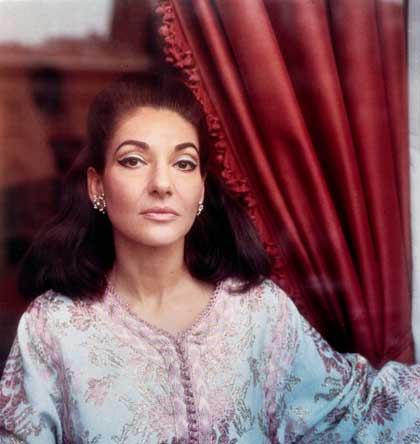Film (2018)
Documentary
Directed by Tom Volf
Film Editing by Janice Jones
With Fanny Ardant (voice), Joyce DiDonato (María Callas / Voice Narration), Maria Callas, Aristotle Onassis, Vittorio De Sica, Pier Paolo Pasolini, Luchino Visconti, Omar Sharif, Brigitte Bardot, Jean Cocteau, Catherine Deneuve, Duchess of Windsor, Duke of Windsor, Grace Kelly, Jacqueline Kennedy, Anna Magnani, Edward R. Murrow, Queen Elizabeth II, Queen Elizabeth the Queen Mother, Barbara Walters

Courtesy of Sony Pictures Classics
Maria Callas was one of the greatest divas – a true musical genius whose capacity for drama, on and off the stage, was considerable. Whether she wanted to be controversial or not, she was, simply because of the voltage of her presence. When she caught a cold and had to cancel a performance part of the way through, it made headlines, and made enemies for her as well. Married to an older opportunist early on, she eventually parted ways with him and took up with Aristotle Onassis with whom she had a celebrated romance until he took up with Jackie Kennedy.
The account of Callas’ love for, devotion to, and disappointment with, Onassis creates the heart and soul of this film which is largely a telling of Callas’ personal life through letters and interviews. The result is highly effective and one indeed gets a sense of the inner-diva hiding beneath the dramatic outer layer. When, in the course of interviews, she says that she’d give up the life she has for something more intimate, one actually believes her.
As well, the film does a terrific job of showing off Callas’ amazing vocal talents. One should actually describe her as a musician, more than a vocalist, capable of producing wonderful tonality but also so attuned to phrasing and mood, to the perfect turn of phrase and line. Her renditions have the feeling of some kind of perfection – beautifully balanced, tuned, shaped and given such a sweet tonality that is neither too shrill nor bland. There indeed is something magical about her singing.
Tragically, Callas died of a heart attack in her early fifties. It’s hard to imagine that’s possible, but there it is. Her life was electric, passionate and brief.
This film is a wonderful testament to her as one of the great vocal artists of the twentieth century. Endless snippets of interviews give a sense of her as a person – frequently quite diffident and cautious about what she’s saying, in opposition to her fiery reputation.
Clips show all the various notables with whom she consorted, without too much attention to dropping names. It’s all taken in as part of the glittering aura by which she was surrounded.
Though noting Callas’ debt to her early teacher, and including a laudatory and appreciative interview about Callas with that teacher, there is not a lot in the film about Callas’ musicality. But, the film is really meant to be a personal portrait, not a reflection on Callas’ character or talent by others. The interview with the teacher is a rare exception, but one understands it given the nature of her intimate relation with Callas.
If one hadn’t known, one would learn here, contrary to common misperception, that Callas was actually born an American in New York City. Her parents were Greek-Americans, and eventually, under the sway of Onassis and other things, Callas wound up becoming a Greek citizen and renouncing her American citizenship. One could easily think of her as a true internationalist, and the film includes many examples of Callas interviewed in French as well as English.
Ultimately, vulnerability and charm radiate through Callas’ intensity in this film’s telling of her story of musical accomplishment, vivid public acclaim, and personal variability and uncertainty in the midst of it. A must-see for opera lovers.
– BADMan
Leave a Reply